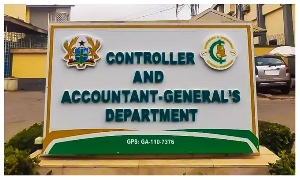By: Bruce Misbahu Bulmuo
Successive governments in Ghana since the end of colonial rule have always trumpeted about the importance of the agric sector to the overall development of the nation and yet little is done to make agriculture the engine of growth.
President Kwame Nkrumah and military dictator, General Ignatius Kutu Acheampong, are about the only leaders of this country who took realistic actions and implemented policies to make farming attractive and their policies really paid off as witnessed by Ghana’s export of rice in the 1970s.
Ghana today is a leading importer of every food item one can think of including rice, tomatoes, plantain, and pepper. Obviously this country cannot produce every food item it needs, but it becomes worrying when we import tomatoes and plantain.
President John Mahama has recognized this problem of huge importation of rice and other food items. It however remains to be seen what policies his administration would implement to boost local production of basic food items.
The benefits of agriculture are well known to us but it will suffice to say that employment creation can be the greatest benefit we as a nation can reap from a well structured farming system.
From farmers who will be engaged on their farms, to value addition companies that will process farm produce and retailers of finished farm goods, one cannot just say the number of people (youth) who would be engaged. It will just be employment galore.
Solutions
One main reason why solutions to our problems have eluded us is because we have simply failed to understand that a common sense approach is what is needed to solve the problems facing the agriculture sector.
Ghanaians have always assumed that made-in-heaven solutions are what we need to solve our problems without stopping to think that basic measures such as the promotion of irrigation to ensure all year farming is enough to take several families out of poverty.
Irrigation was promoted in the 1970s, especially in the Northern, Upper East and West Regions. Tomatoes farmers in Navrongo and Bolgatanga enjoyed this greatly. Even in ancient Egypt farmers along the Nile River made great use of that water body.
We now have to rely on a Sahelian nation such as Burkina Faso for tomatoes. Please reader just consider the distance from Accra to Ouagadougou.
Many advanced countries the world over are actively promoting irrigation with the man-made dams they have created and some also rely on lake, rivers, and streams. Unfortunately we in Ghana have decided to pollute our water systems.
Policy makers should seriously consider the number of families who stand to benefit from a dam that would be dug in any community for the purposes of farming. Illegal miners who have encroached on water bodies should be made to face the full rigours of the country’s laws.
Hundreds of energetic young men and women who leave the comfort of their homes in the three regions up north and migrate to the south in search of menial jobs can be made to stay back if they are assured of gainful employment through all year farming.
Farmers can get to reap the full benefit of their labour if value is added to their farm produce through processing as was done at the tomatoes and beef factories in the Upper East Region.
Here again most people always think that a multi-billion dollar factory is what is needed without thinking that a simple processing plant on a half-acre land can be useful. Mr. Kwame Despite with his Neat Foods has palpably demonstrated that simple technology can be used to process farm produce and create employment. He has shown us the way, let us follow.
Ghanaian rice farmers have not been able to export their produce or even gain the attention of local consumers because they lack the necessary machines to be able to de-stone (removing stones and other unwanted materials in the rice).
De-stoning machines are however available in the international farm input market and farmers can be helped to acquire some to produce quality rice. Lest we forget local rice is more nutritious than the one boasted by the Rice Master.
The deplorable nature of our rural road network is also a very big problem facing farmers in the hinterlands. The upcountry areas are also the agriculture centers and source of food and cash crop for the nation.
I would suggest that government should henceforth cease constructing urban roads and direct all available resource towards rehabilitating and upgrading of rural roads since the latter serve useful purpose and would benefit the country.
Farm produce are always held up in the hinterland and go waste because farmers are not able transport the food stuff to the big centers or cities as a result of the deplorable road condition. Unfortunately the farm produce cannot also be processed in the rural areas.
Transport owners also take advantage of the bad state of the road and charge middle-men (who buy farm produce at ridiculously low prices from farmers) high fares to bring food stuffs to the urban areas.
The overall effect of the above is that food becomes expensive to the average Ghanaian, with many families finding it difficult to buy a square meal a day. Yet Ghana is dubbed as an agriculture nation.
When Ghana produces more food the school feeding concept can be sustained since schools in the local areas would rely on their local farmers for food stuff.
As said earlier, simple solutions can solve our problems and let us as a nation stop paying lip services to agriculture and search for simple solutions. Thankfully our President has recognized the problem and he has been an advocate of home-grown solutions. Good one. All we can do is to support him. God bless Mother Ghana.
Opinions of Sunday, 22 June 2014
Columnist: Bulmuo, Bruce Misbahu














